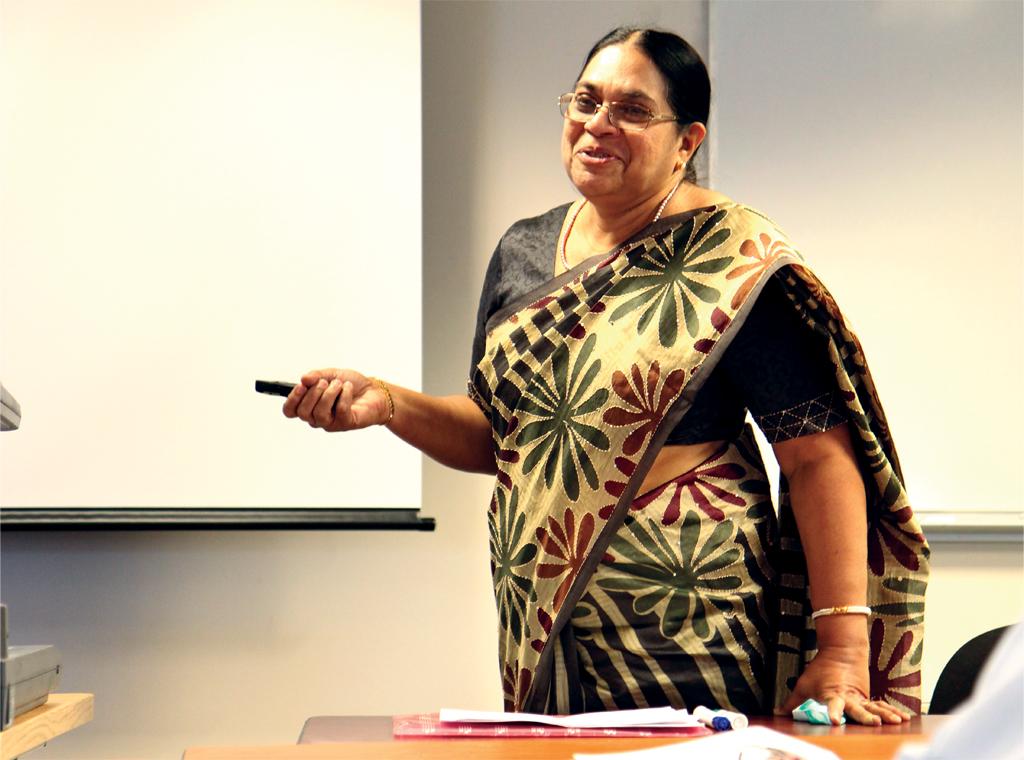
Jameela Begum A., an Indian academic, gave a lecture on what she referred to as the “Indian Diaspora” Friday in Academic A room 202.
Begum A., an English professor and director of the University Grants Commission (UGC) Area Study Centre at the University of Kerala, India, has presented academic papers at international conferences in India, the United States, Australia, Japan, Belgium, Canada and the United Kingdom.
In her lecture titled “Diaspora, Transnationalism and the Literary Text: The Indo-American Experience,” Begum A. discussed the concept of diaspora.
“When we are talking about diasporas, we are talking about the inside and outside interaction as education,” Begum A. said. “There are a number of multiple identities and cultures that we need to look at in detail. It is not in the statistics and data but in text that you will find these multiple identities.”
Manas Chatterji, a professor in Binghamton University’s School of Management, introduced Begum A.’s lecture.
“I was interested in the relationship between India and the United States,” Chatterji said. “The role of culture is a question of ethics, history and the role of positions.”
Chatterji said he hoped that students would gain a broader perspective after attending the lecture.
“Our students need to have a broader perspective,” Chatterji said. “For example, if you go into the profession of international accounting, you will most likely get a job internationally. Things have changed in the global world.”
Begum A. presented a clip from the movie “The Namesake,” followed by a PowerPoint presentation.
The clip depicted a woman who left India to come to the United States. After 25 years, the woman left her children and family to return to her native country.
“This is a cyclical pattern,” Begum A. said. “She split her time between America and India. She assimilated into a new country.”
She also discussed assimilation, accommodation and acculturation — all of which are issues that she said Indo-Americans experience upon immigration.
“Where you don’t totally belong, you’re still assimilating,” Begum A. said. “You are still in the margins of this country and your home country. Once you are out of your country, you have multiple identities; you are not confined to one nation. You are not part of one home nation.”
Jibbin Abraham, a freshman majoring in accounting who attended the lecture, is from the same Indian state as Begum A. and was aware of some of the issues discussed at the lecture.
“When you hear of Indians in this culture, you can’t call all of them just Indians; most of them are of different religions,” Abraham said, referring to India’s varied ethnic and religious demographic makeup.
He said he felt a personal connection to the topic.
“All of these different religions are still separated among themselves,” Abraham said. “Indians are unlike any other nationality; we are the most stubborn and don’t really like assimilating and like sticking to our own ethnic issues.”
Begum A. said that immigration is not only a geographical change, but also a psychological journey.
“The cultural sharing of our nationality and ethnicity really relates us to others,” Begum A. said. “The psychological side of diasporas is sort of like bringing a cultural baggage with you. You bring your religion, beliefs, political beliefs and your routine from home to your new country.”


